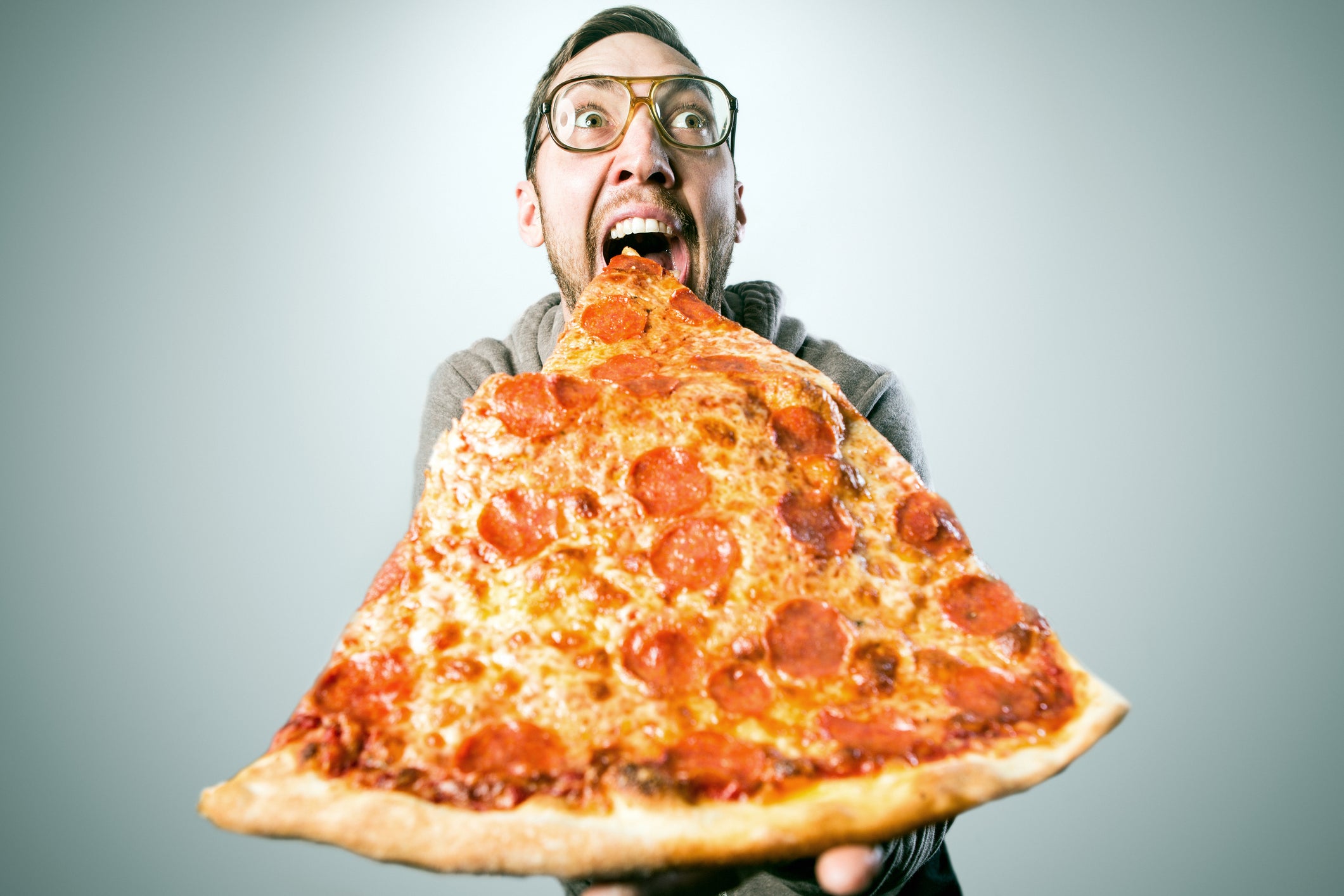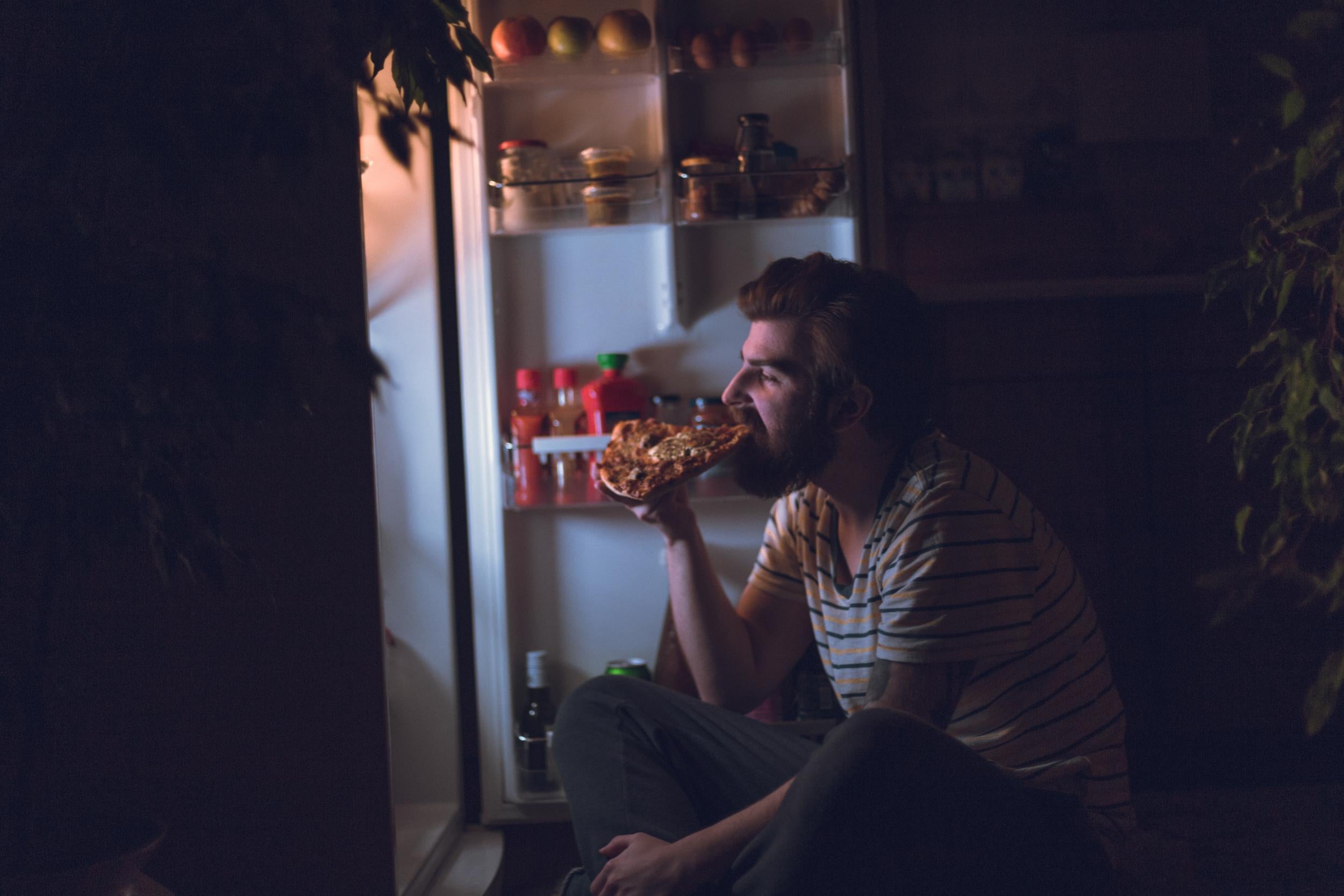The Independent's journalism is supported by our readers. When you purchase through links on our site, we may earn commission.
Carb backloading diet claims you can eat pizza and lose weight - but experts aren't convinced
The diet encourages people to eat simple carbohydrates such as bread and pasta

Your support helps us to tell the story
From reproductive rights to climate change to Big Tech, The Independent is on the ground when the story is developing. Whether it's investigating the financials of Elon Musk's pro-Trump PAC or producing our latest documentary, 'The A Word', which shines a light on the American women fighting for reproductive rights, we know how important it is to parse out the facts from the messaging.
At such a critical moment in US history, we need reporters on the ground. Your donation allows us to keep sending journalists to speak to both sides of the story.
The Independent is trusted by Americans across the entire political spectrum. And unlike many other quality news outlets, we choose not to lock Americans out of our reporting and analysis with paywalls. We believe quality journalism should be available to everyone, paid for by those who can afford it.
Your support makes all the difference.A new diet that claims to result in weight loss while maintaining muscle mass has people binging on bread and pasta at night - but experts warn it may not be effective.
Carb backloading encourages eating minimal carbs during the day, and then - after a hard workout - eating loads of carbs at night.
Essentially, the diet relies on the idea that carbohydrates and the subsequent insulin produced should be avoided during the day so your body has no glucose to fuel fat tissue.
“The theory of carb backloading is based on the fact that insulin sensitivity is higher earlier in the day, which promotes carbohydrate absorption into your muscles and fat tissue,” Emmie Satrazemis, a registered dietician and nutrition director at Trifecta told Shape magazine.
At night, after a workout, carb backloading means you can eat any carbs you want because the carbs will be used to fuel your muscles.
Simple carbs are supposedly best for carb backloading as these are absorbed quicker into the bloodstream - in comparison to complex carbs, which are typically recommended by nutritionists as they are digested slowly and keep blood-sugar levels stable.
Some studies on the effectiveness of the diet do support the theory behind carb backloading, but the evidence is minimal.

One study, analysing 78 police officers over six months found that those who did engage in carb backloading reported “greater weight loss, abdominal circumference and body fat mass reductions.”
This may be because carb backloading is similar to the Keto diet, a diet that limits carb intake, and “works well for quick weight loss,” according to nutritionist Barbara Quinn.
However, Quinn told The Independent: “Muscles deprived of carbs (their main source of fuel) may result in fatigue, especially for athletes or anyone who wants to be more physically active.”
Apart from keeping your muscles from the fuel they need during the day, the diet also allows a lot of room for failure, according to Orange Theory personal trainer Benji Tiger.
Tiger told us: “It is not an effective diet, no. Your body will be deprived of carbohydrates all day and when you go to eat them at night, you can overdo it.”
Because even though you can eat pasta at night, calories and quantity still matter - and you must work out.
“If you’re just waiting until the end of the day to eat your carbs without partaking in any sort of exercise program, it won’t really matter because carbs are carbs - it doesn’t matter what time of the day you eat them,” New York City Spear Physical Therapy rehab trainer Jared Anderson told us.
For carb backloading to actually result in weight loss, working out is required - as is eating the right amount of carbs.
While the idea of eating an entire loaf of bread for dinner and still losing weight is appealing, a healthy balance of carbs, fats, and protein throughout the day is a healthier and more reliable approach.
Join our commenting forum
Join thought-provoking conversations, follow other Independent readers and see their replies
Comments